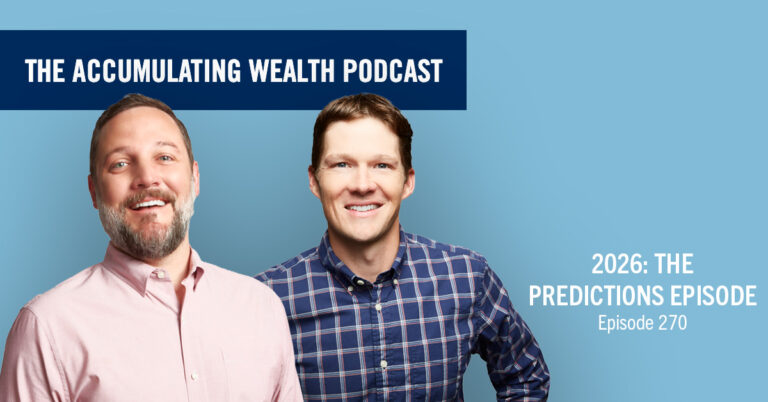Can qualified research activities hold up against an IRS audit?
Dental practice owners and the financial advisors that support them are always on the search for advantageous tax credits that can minimize tax liability. Tax-advantaged savings environments and business deductions are all standard good practices. However, there is another tax credit that has recently stepped into dental industry news, the Research and Development (R&D) Tax Credit.
The R&D tax credit is available to companies developing new or improved business components, including products, processes, computer software, techniques, formulas or inventions, that result in new or improved functionality, performance, reliability, or quality. It’s available at the federal and state level, with over 30 states offering a credit to offset state tax liability.
The research credit is an incremental credit, versus a deduction, which means that a company is rewarded for increasing its spending on research activities. For practices that do not have three years of previously documented research experience, they could qualify for a credit that is 6-8% multiplied by the qualified research expense (QRE).
Although there are two different ways to calculate the credit, most calculate it based on wages earned while performing the QRE. For a very simplified example, if a doctor’s annual wages are $300,000, and $100,000 of those wages can be attributed to performing research, the credit could be $6,000 (6% x $100,000).
The actual credit amount is complicated. For practices that do have years of documented research, it can still fluctuate significantly based on QRE proceedings for each of the four qualified years. The credit can be anywhere between 6-12% of the QRE. For more information about the credit calculation, please refer to Form 6765 instructions.
With many companies soliciting online and at dental conferences promising tens of thousands of dollars in tax credits for doctors utilizing on-site milling or in-house labs, implementing new technologies or creating new processes and techniques, it’s easy for this credit to sound appealing.
But will it hold up against an IRS audit? The following blog outlines the four IRS qualifications that must be met and CWA’s opinion on if owners should attempt to quality for this credit.
The Qualified Research Activity must pass a four-part test:
- Section 174 Test (AKA: Qualified Purpose Test or Elimination of Uncertainty Test)
- Purpose of the activity for expenditures must be:
- Treated as expenses incurred by the taxpayer’s trade of business.
- Represent R&D costs in the experimental or laboratory sense.
- Purpose of the activity for expenditures must be:
The expenditures must be incurred for activities that would eliminate uncertainty in the development or improvement of a product or business component. For example, doctor wages earned during the time period that the doctor was working on the research activity to eliminate uncertainty. Any wages earned after uncertainty was eliminated do not qualify.
Effective 1/1/2022, R&D costs may no longer be currently deductible and must be amortized ratably over 60 months unless Congress takes action. This new rule will increase your taxes in the short-term.
- Business Component Test
- To pass this test the activity must intend to apply the information being discovered to develop a new or improved business component of the taxpayer.
- A business component is any product, process, software, technique, formula or invention that is held for sale, lease or licensed to the business or used by the taxpayer in a trade of business.
- Examples for the dental industry include: new or improved dental devices or new or improved dental procedures, especially if procedures were published.
- A business component is any product, process, software, technique, formula or invention that is held for sale, lease or licensed to the business or used by the taxpayer in a trade of business.
- To pass this test the activity must intend to apply the information being discovered to develop a new or improved business component of the taxpayer.
- Process Experimentation
- Activities must be elements of a process of experimentation relating to a new or improved function, performance, reliability or quality. The test MUST do the following 6 things:
- Follow principles of engineering, physics, chemistry, biology, computer science or similar “hard sciences.”
- Focus on the technological nature of the activity.
- Be for the purpose of eliminating uncertainty by evaluating alternatives through modeling, simulation and other methods.
- Taxpayer does not need to consider more than one alternative to the problem. The process needs to be evaluative and capable of considering more than one solution.
- Experiments may be done even if there is uncertainty of the method to achieve desired results, as long as the method and design of achieving results is uncertain at the outset.
- Process is evaluated by activity and is met if at least 80% of activities relate to new or improved function, performance, reliability or quality.
- Activities must be elements of a process of experimentation relating to a new or improved function, performance, reliability or quality. The test MUST do the following 6 things:
Process experimentation must be thoroughly documented. Prior to beginning the research activity, the taxpayer should document the problem/uncertainty, the desired outcome, and the preliminary alternatives that will be evaluated through experimentation.
As the research activity progresses, the different alternatives should be documented along with any revisions and the outcome of each alternative. If new alternatives are identified, then it must be documented as to the initial uncertainty of whether this alternative will succeed.
Document when the activity is complete, and uncertainty has been eliminated. The expenses incurred during this process such as wages and supplies should be documented contemporaneously while performing the research. Payroll reports are not enough. There needs to be documentation as to the hours and days that are spent on the project.
- Technological in Nature
- The activity must be completed by relying on hard sciences, such as engineering, computer science, or biological sciences. For this test it is NOT required that:
- The activity be successful.
- The taxpayer obtains information that exceeds common knowledge of skilled professionals in that field. In other words, the taxpayer does not need to expand their field of knowledge to complete the activity.
- The activity must be completed by relying on hard sciences, such as engineering, computer science, or biological sciences. For this test it is NOT required that:
CWA’s Thoughts:
The intent of the R&D credit is to give credit for companies that do research and development of new and innovative products and processes within their organization. It is a “one time” type credit, not an “every single patient” type credit.
Two of the specific activities that are excluded from the R&D credit per the IRS are:
- Research that adapts existing business components as if the taxpayer’s activity is only to customize a product based on a customer’s requirement or need.
- For example, orthodontists that have in place Bracket Braces and Invisalign in their practice, they are not doing new R&D every time a patient comes in for braces. Rather, they are adapting an existing business component to a customer’s need.
- While some vendors may argue the “exclusion for adaptation,” qualifies this experimentation, especially for orthodontic treatments, our CPAs disagree.
- Research that duplicates existing components.
For general dentists, routine dental cleanings, fittings and extractions, and activities they perform daily don’t qualify for the R&D Credit as they do not satisfy the “Section 174 test” and “process of experimentation” tests.
Dental specialists such as periodontists and prosthodontists may qualify for some unique cases. CWA has had clients that qualify for the credit which tends to be between $10,000 to $20,000. Most of these specialists have done significant research and created new techniques or procedures and have had their work published.
Careful consideration for your practices unique situation should be taken prior to pursuing this credit. It is advised that you consult your personal accountant, CPA or financial advisor prior to engaging with any third-party promising to chase a credit on your behalf. CWA has worked with R&D tax credit specialists that can be available to speak with you about your unique situation.














